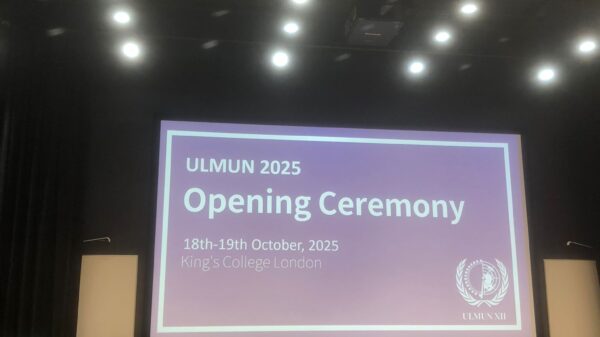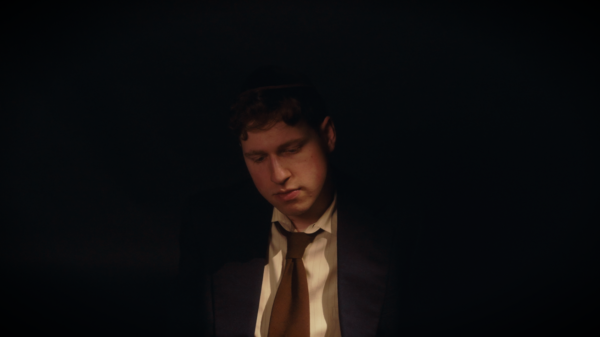King’s College London (KCL) has announced that its unique International Child Rights and Development MA will close as a standalone programme in 2027.
Staff and students affected have been told a fall in student uptake of the course, alongside new alternative courses offered at other UK universities, has forced the decision. Roar spoke to students and staff involved with the course on the impact of the specialist course as well as its closure.
Lou Gutenburnner, a student on the course, told Roar:
“This programme is one of only a handful in Europe dedicated specifically to children’s rights. Its closure not only undermines KCL’s commitment to social justice and global equity but also sends a troubling message about how children are valued in academic, policy, and development spaces.”
Roar was told the course had come under threat due to declining student numbers since March 2024. In June 2025, the Faculty confirmed the closure, with one staff member describing the closure as “a portfolio simplification exercise in the Faculty and to rebalance staff time, to move staff from low recruiting programmes to higher recruiting programmes.”
Staff were told the programme needs 30 students to be considered viable; however, Roar was told that individual modules can be run with only 25 students, and modules can be expanded to other departments and courses to meet quotas.
King’s issued the following statement internally to students and staff affected by its decision:
“The ongoing challenges in the higher education sector in the UK have posed significant challenges to the continuation of our MA in its current form. Over several years, the MA International Child Rights and Development has experienced hurdles with student enrolment, largely due to potential applicants experiencing difficulties in financing their education in this area. The programme will continue in the next academic year but will cease operating as a stand-alone programme from 2027 onwards.”
Students and staff expressed that King’s may have made assumptions about the placement of such specialist courses in the wider educational landscape. Roar was told the Child Rights and Development course at King’s course often remains the first choice among prospective students, with its specialist nature differentiating that of King’s from UCL’s course.
The programme’s director spoke to Roar on her discontent with the course being treated as a ‘standard’ MA:
“I don’t think the specialist nature of the MA, the applied focus, the action focus, the critical engagement, multi-disciplinary engagement was well known.”
King’s closure policy also does not require any consultation with staff or students on the closure of the MA, with one staff member informing Roar that they were not involved in the meetings.
One senior lecturer on the course told Roar the wider global context should be acknowledged within the decision, “Right now is the worst possible time to cut back on such a course. Indeed, it could not be more necessary.”
“This news is particularly troubling, not only for us as students, but also for what it represents in the current state of the world. We are living through times of escalating war, deepening inequality, and increasing disregard for human rights, especially those of children, who are being maimed as if they were objects.” – Regina Penalva Orozco, a student on the course
Students from the course expressed their disappointment with the decision, noting the “essential” nature of the course for the future of children’s rights.
One said, “These very programmes embody the ethical responsibility of education, to question, to challenge, and to defend the most fundamental human rights and uphold the dignity of children in every corner of the world.”
Another student, Lou Gutenbrunner, reflected on the wider global context.
“This programme’s closure ironically proves its own importance: in a world where children’s rights are so often overlooked, we need dedicated spaces to study, defend, and advance them. Keeping this master’s programme alive is far more than an academic decision, rather it is our duty,” she said. “We constantly speak about the importance of the ‘next generation’, but such rhetoric demands concrete investments in children and childhood studies.”
Within KCL’s internal statement, they acknowledged the important contributions the course provided to the industry:
“The School of Education, Communication and Society (ECS) at King’s College London has made outstanding contributions to research and advocacy to promote child rights and wellbeing, particularly through a dedicated master’s programme. This work remains highly relevant and much needed, especially given the current trends in many parts of the world towards a marked disregard for human rights, including children’s rights.
“New collaborative arrangements at undergraduate and post-graduate level are being explored actively and will be put in place to enable the outstanding staff of ECS to continue their work and offer interested students and working professionals new, exciting and financially sound educational opportunities in the field.”
In the reaction to the decision, lecturers and externally-involved academics wrote to the Faculty regarding the decision.
Gerison Lansdown, who teaches on the programme, wrote in her letter, “This course, and others like it, play a hugely important role in service of work to strengthen children’s rights globally. The field of children’s rights is complex and is rarely covered in any detail by academic studies on human rights more generally. Yet it is vital that opportunities for such study are available. Children have a different status in law from adults and targeted courses focused exclusively on their rights are essential.”
She continued, “In light of all these points, the existence of an international high quality master’s in children’s rights, as provided at Kings, is vital. Over the years, the course has made a significant contribution to building expertise in children’s rights around the world which would be seriously missed if it was to close.
“It has built a community of young and not so young people with the commitment, energy and most importantly, the requisite competencies to undertake the work of promoting the implementation of children’s rights – in the criminal justice system, refugee camps, child protection, children with disabilities, child soldiers and so much more.”
Professor Jane Fortin, founded the course in 1989 and no longer teaches at King’s. However, she expressed her discontent with the “extreme” decision, arguing that the course was academically rigorous and was important in promoting King’s to prospective students by strengthening its reputation. She also noted that the course operates with little competition across UK universities.
A spokesperson for King’s College London said:
“The University regularly reviews courses to ensure they meet the needs and demands of students, and as part of this process, the International Child Rights and Development MA is being reorganised and will not run in its current form in 2027. Following an extended period of consultation, we are re-configuring our educational offer in this area to ensure we can provide the best experience for our students, which includes developing new educational programmes for the future. We remain committed to continuing to deliver high-quality education, specialist training, and innovative research in this field.”
Grace Holloway is Roar's editor-in-chief managing the editorial side of our operation as well. She has gained valuable experience from Bloomberg as well as writing for Breaking Media, the Non-League Paper and Politics UK.















